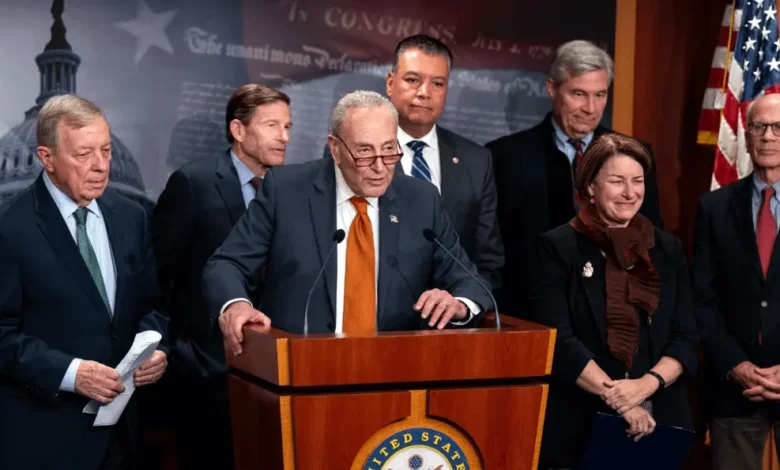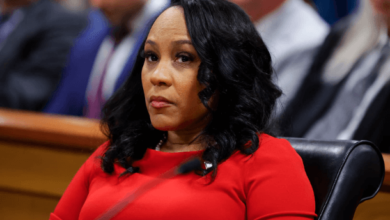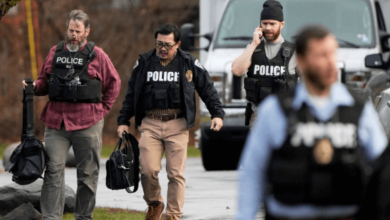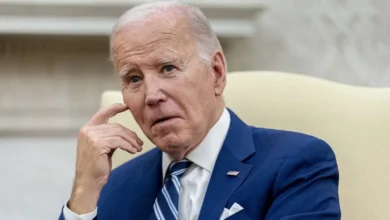Congress Avoids Holiday Shutdown With Last-Minute Bipartisan Funding Deal

Congress successfully averted a holiday season government shutdown after striking a bipartisan deal to fund government operations through March 14. The Senate approved the spending package early Saturday morning with an overwhelming vote of 85 to 11, shortly after the House passed it with bipartisan support, 366 to 34. President Joe Biden is expected to sign the measure swiftly, ensuring government services continue uninterrupted during the festive season and as Republicans prepare to take control of Congress and the White House in January.
Key Aspects of the Bill
The spending bill primarily focuses on:
- Maintaining government operations through March 14.
- Allocating resources for disaster relief, including hurricane aid.
- Providing financial support for farmers.
- Preventing controversial budget cuts that could have impacted federal agencies.
“This bipartisan bill represents a crucial effort to keep the government open, support Americans in need, and avoid a damaging shutdown during the holidays,” said Senate Majority Leader Chuck Schumer, D-N.Y.
Republican Divisions and Leadership Challenges
The deal highlighted tensions within Republican ranks, as leaders sought to balance demands from their base, Trump, and pragmatic governance needs. House Speaker Mike Johnson, R-La., praised the agreement as a “vital” step toward preparing for upcoming Republican leadership transitions. He revealed he consulted with former President Donald Trump and Elon Musk, a prominent campaign financier, to garner necessary backing for the vote.
However, not all Republicans were on board. Critics like Rep. Thomas Massie, R-Ky., criticized the process, claiming it lacked transparency and sidelined rank-and-file members. Meanwhile, Rep. Chip Roy, R-Texas, expressed frustration, saying the bill fell short of meaningful reforms but conceded that achieving a funding extension was a step forward.
See also: Georgia Court Disqualifies DA Fani Willis in Trump’s Election Racketeering Case
Bipartisan Collaboration and Democratic Influence
House Minority Leader Hakeem Jeffries, D-N.Y., emphasized the significance of the bipartisan collaboration, particularly the decision to exclude a controversial borrowing limit increase that Trump had pushed. “This compromise allows for stability while giving Congress additional time to prioritize effective governance,” Jeffries noted.
Democrats and moderate Republicans banded together to oppose a Trump-endorsed provision that would have paired a government funding extension with a substantial borrowing limit increase. This rejection culminated in last-minute negotiations leading to the eventual bipartisan compromise.
See also: Bronx Entrepreneur Celebrates Jamaican Coaching Legends at Vibrant STETHS Event
What’s Ahead for Congress
Despite the temporary resolution, Congress faces significant challenges in 2025:
- Spending Priorities: Lawmakers remain divided over budgetary allocations and deficit reduction strategies.
- Debt Ceiling: Republicans aim to push a proposal pairing a $1.5 trillion borrowing limit increase with $2.5 trillion in spending cuts. While it offers a framework, its specifics are contentious and remain undecided.
- Republican Agenda: With control shifting to Republicans in January, the party aims to prioritize tax cuts and spending reforms, though internal divisions could impede progress.
The narrow margins in both chambers underline the difficulty in achieving unity, even within a single party. Future negotiations will test the ability of congressional leaders to reconcile these differences while steering critical legislation.
Congressional Dysfunction and Public Criticism
The negotiations capped a chaotic week on Capitol Hill, exposing deep fissures in political alliances. Discontent ran high among lawmakers as initial proposals were derailed by partisan disagreements and high-profile interventions by Trump and Musk.
Senator John Kennedy, R-La., likened the sprawling bill to a “Christmas tree at Rockefeller Center,” brimming with provisions that left many dissatisfied. Meanwhile, grassroots criticism focused on the perceived inefficiency of Congress, with pundits describing this legislative session as one of the most dysfunctional in recent memory.
Read this one also: Jamaica Emerges as a Star Performer for CIBC Caribbean Bank in 2024
Avoiding the Shutdown: Implications for Americans
Had a deal not been reached:
- Thousands of federal employees faced potential furloughs.
- Government agencies considered “non-essential” would have ceased operations.
- Critical services and public programs might have been delayed.
“This agreement shows that even amid divisive times, bipartisan action can achieve results that matter to the American people,” remarked House Speaker Mike Johnson.
Conclusion
While Congress succeeded in avoiding an immediate shutdown, the March deadline sets the stage for further debate and decision-making in the new year. With Republicans taking charge of both Congress and the White House, the path forward promises new priorities but also heightened stakes for governance and public trust.



